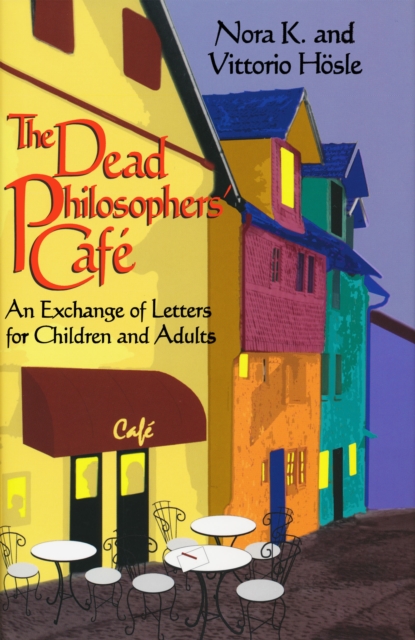
Dead Philosophers' Cafe, The : An Exchange of Letters for Children and Adults Hardback
by Vittorio Hosle
Hardback
Description
Eleven-year-old Nora K. received Jostein Gaarder’s Sophie’s World as a birthday present, and in it she read about Plato’s theory of ideas.
One problem especially intrigued her: What about the Platonic idea of the dinosaur?
Ideas are timeless and cannot die. The dinosaurs, however, became extinct ages ago. Does the idea of the dinosaur still exist all the same?
Could it even be that the material world is a dream and time an illusion?
Moreover, is there such a thing as free will, or is everything predetermined?
Is the soul eternal? Do animals have a consciousness? Is the universe infinite? Is there such a thing as objective truth? Does God exist, and why is there evil in the world?These are some of Nora’s questions which prompted her correspondence with Vittorio Hösle, a philosopher by profession, who invents a wonderful philosophical fantasy.
Taking the film Dead Poets Society as his inspiration, he creates a place where the great philosophers of antiquity and their modern successors can all meet.
They gather in the “Café of the Dead but Ever Young Philosophers” and discuss Nora’s letters—Parmenides and Socrates, Descartes and Hobbes (whom Nora doesn’t like at all), “Mac” (Machiavelli) and Kant, Nora’s “patron philosopher” Giambattista Vico and Hans Jonas, and many others.
The sparks fly from time to time, as the great thinkers squabble quite frequently—no wonder, since conflicting arguments from the entire history of philosophy collide with each other head-on. Nora’s letters are intelligent, never precocious, and always imaginative.
Vittorio Hösle provides answers which are entertaining but still critical, and he is clearly concerned about not setting his expectations of the child too low.
In his afterword on children’s philosophy and philosophy with children, he sketches what role philosophy could play in raising children.
The correspondence with Nora, an authentic exchange of letters between January 1994 and January 1996, is a lovely document of a philosophical friendship between an adult and a child. The Dead Philosophers’ Café has been widely translated and is now making its first appearance in the English language.
Information
-
Available to Order - This title is available to order, with delivery expected within 2 weeks
- Format:Hardback
- Pages:176 pages
- Publisher:University of Notre Dame Press
- Publication Date:20/03/2002
- Category:
- ISBN:9780268008949
Information
-
Available to Order - This title is available to order, with delivery expected within 2 weeks
- Format:Hardback
- Pages:176 pages
- Publisher:University of Notre Dame Press
- Publication Date:20/03/2002
- Category:
- ISBN:9780268008949






